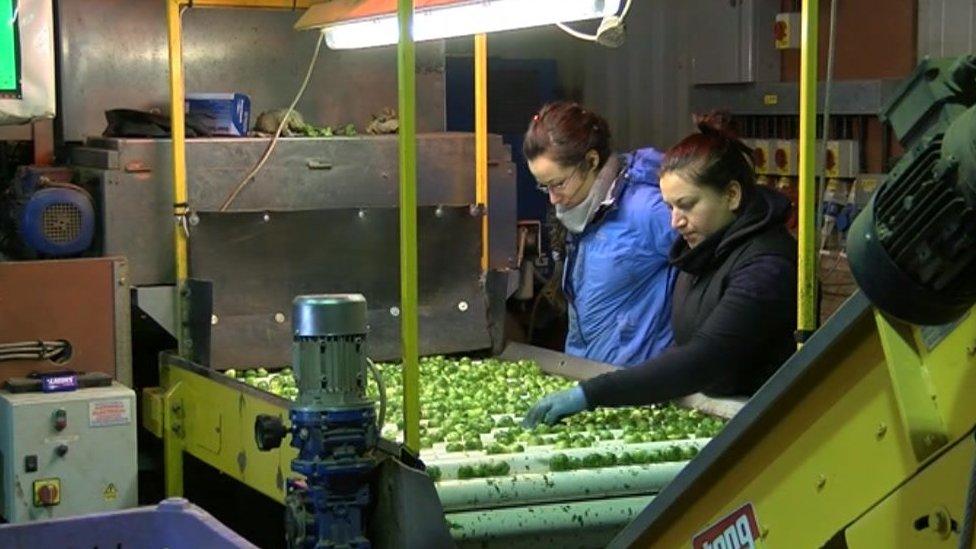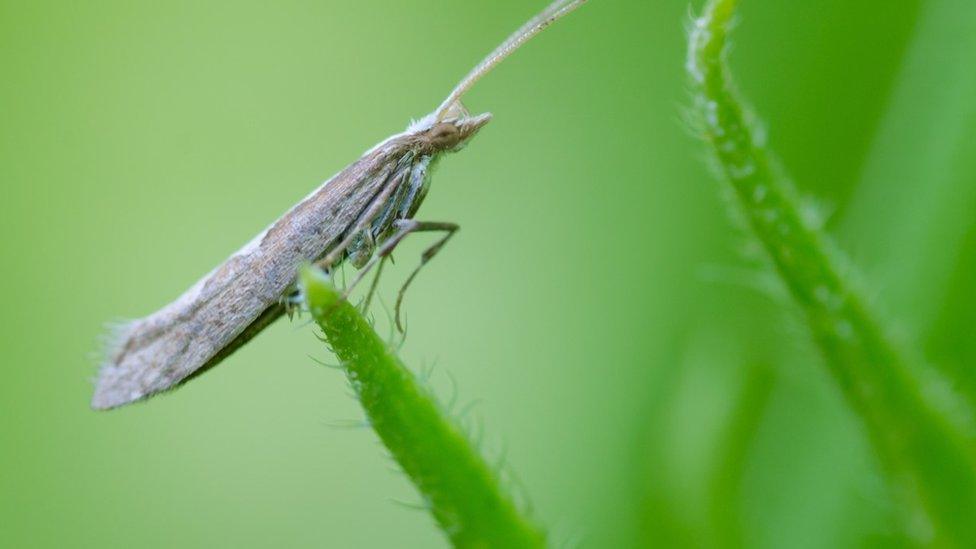Brussels sprouts under Christmas threat after summer moth invasion
- Published

Some growers reported losing their entire Christmas supply of sprouts to the moth
Brussels sprouts could be under threat on Britain's Christmas tables this year - due to a summer invasion of sprout-eating moths.
Some of the UK's largest producers have said they are struggling to produce enough of the loved-and-loathed veg.
Lincolnshire supplies almost two thirds of all sprouts produced in the UK, with farmers reporting losses of up to 60%.
Farmer Mike Capps, of RM Capps Ltd, near Boston, said "the damage has been considerable".
He said: "We've had the biggest pile of damaged sprouts ever seen."
"We've actually had one field where we have thrown away about 60% of the crop - so we are below production cost," he said.
Earlier this week, it was reported that one of the biggest vegetable growers in the Channel Islands, external lost his entire Christmas supply to the diamond-back moth.
More on this and other local stories from across Lincolnshire

According to the British Growers Association, Lincolnshire provides almost two-thirds of all sprouts produced in the UK
The diamond-back is also known as the cabbage moth - and that crop, along with cauliflowers is also being affected.
Considerable scientific effort is now being expended to understand more about the moth and to work out how to control it.
Dr Steve Foster, from Rothamsted Research centre, said: "The diamond-back moth is known as a super-pest because it is notorious for its ability to evolve resistance to a wide range of pesticides."
A report on behalf of AHDB Horticulture - an agricultural research firm - found there was a large migration of diamond-back moths in late May.
These moths laid eggs quite soon after they arrived in the UK and their caterpillars had caused considerable damage in some locations.
The report said there was a second generation of diamond-back moth adults in July.
Other areas affected by the invasion included Suffolk, Scotland and Northern Ireland.

Diamond-back moths

Diamondbacks, also known as cabbage moths, originate in the Mediterranean and in caterpillar form can devastate crops
Their larvae chew through the leaves of cabbages and sprouts within days, leaving just the vegetables' veins
They also attack cauliflowers, turnips, kale, rape, broccoli and watercress
Plant damage is only caused by the caterpillars, with the last stage causing the worst damage
